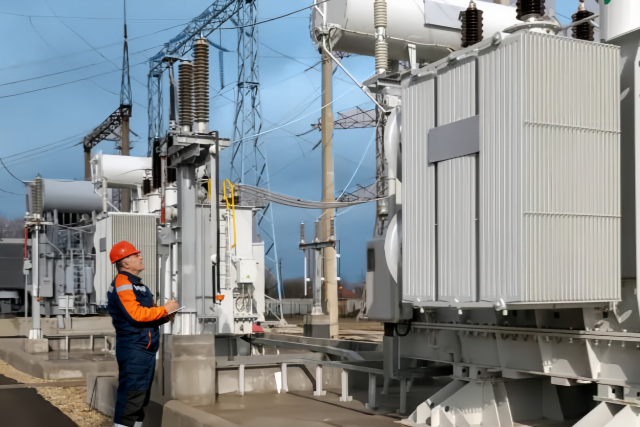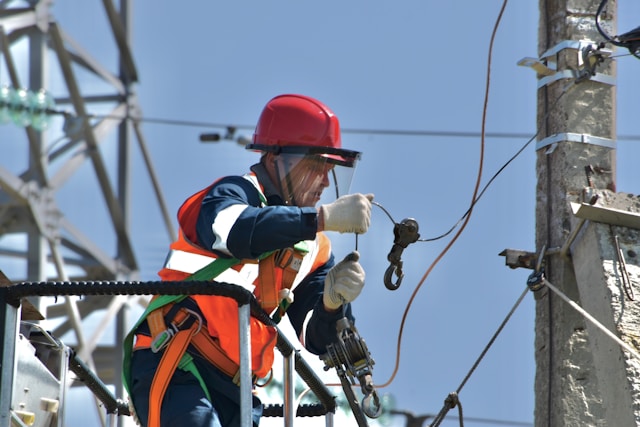The typical insulation resistance of equipment rated 480V generally ranges from 1 megaohm (MΩ) to several hundred megaohms, depending on the equipment type, condition, and testing standards. Proper insulation resistance is critical for electrical safety and performance, especially in industrial settings involving 480V power systems.
What Is Insulation Resistance and Why Does It Matter for 480V Equipment?
Insulation resistance measures the electrical resistance of insulating materials against current leakage. For 480V equipment, adequate insulation resistance prevents electrical faults, short circuits, and equipment damage, ensuring operational safety and longevity. It is a key electrical parameter tested regularly in manufacturing and maintenance.
High insulation resistance indicates good insulation quality, which is essential for the reliable performance of motors, transformers, switchgear, and other 480V-rated devices widely used in industrial factories.
How Is the Typical Insulation Resistance of 480V Equipment Measured?
The typical insulation resistance of 480V equipment is measured using insulation resistance testers or megohmmeters, which apply a DC voltage (often 500V to 1000V) and read the resistance value in megaohms. The test detects leakage currents through insulation materials.
For accuracy, measurements should be taken under controlled environmental conditions, ideally after the equipment has been de-energized and cleaned. Wrindu’s advanced testing equipment offers precise, reliable measurements tailored for factory and OEM environments.
Which Factors Affect the Typical Insulation Resistance Values for 480V Equipment?
Typical insulation resistance varies due to several factors:
- Age and wear of insulation materials
- Environmental conditions like humidity and temperature
- Type and quality of insulating materials used
- Equipment operating voltage and rated standards
- Contamination or moisture ingress inside equipment components
Factories and OEM suppliers must consider these factors when setting insulation resistance standards and inspecting 480V-rated equipment.
What Are the Standard Insulation Resistance Values for Different 480V Equipment?
Insulation resistance standards for 480V equipment generally include:
| Equipment Type | Minimum Insulation Resistance (MΩ) | Test Voltage (V DC) |
|---|---|---|
| Motors | 1.0 – 10 | 500 – 1000 |
| Transformers | 1.0 | 500 – 1000 |
| Switchgear | 1.0 | 500 – 1000 |
| Cables | 1.0 – 10 | 500 – 1000 |
OEM manufacturers and suppliers in China, like Wrindu, adhere to international standards such as IEC to ensure product quality and safety compliance for factory and wholesale distribution.
How Do Manufacturers in China Ensure Consistent Insulation Resistance in 480V Equipment?
Chinese manufacturers and factories employ strict quality control processes, including rigorous insulation resistance testing at multiple assembly stages. Custom and OEM producers rely on high-precision test meters like those from Wrindu to maintain consistency in insulation integrity across large production runs.
Continuous investment in advanced testing technology, research, and skilled technicians supports superior insulation performance and international compliance for export and wholesale buyers.
Why Is Monitoring Insulation Resistance Critical for Equipment Rated 480V?
Monitoring insulation resistance helps detect insulation deterioration early, preventing costly downtime, equipment failure, and safety hazards in industrial facilities. Consistent testing allows predictive maintenance by identifying weaknesses before they cause electrical faults.
Factories and OEMs in China prioritize insulation resistance monitoring to meet strict safety standards, reinforce customer trust, and enhance product longevity in the wholesale and global market.
Where Can B2B Clients Find Reliable 480V Equipment With High Insulation Resistance?
B2B clients seeking 480V equipment with certified insulation resistance should consider reputable Chinese suppliers and manufacturers like Wrindu. They provide factory-direct, OEM, and custom testing solutions certified by ISO9001, IEC, and CE standards, ensuring high-quality, reliable equipment for industrial use.
Wrindu supports global wholesale buyers with thorough test reports, consultation, and professional services covering production to delivery, emphasizing sustainable innovation and safety.
Can Insulation Resistance Be Improved in Existing 480V Equipment?
Yes, insulation resistance can sometimes be improved by cleaning impurities and moisture from equipment components, drying circuits, or applying insulation repair compounds. Regular maintenance and using high-quality replacement parts also enhance insulation longevity.
OEMs and factories like Wrindu often provide testing and refurbishment services to help extend the life of equipment while maintaining compliance with insulation resistance standards.
What Are the Latest Innovations in Insulation Resistance Testing for 480V Equipment?
Innovations include digital, wireless, and automated insulation resistance testers that provide real-time data and cloud connectivity for remote diagnostics. Wrindu leads in developing high-voltage testing equipment with intelligent features, enhancing accuracy, safety, and ease of use for manufacturers and maintenance teams.
Such innovations support smarter factory automation and higher quality assurance for 480V equipment in demanding industrial environments.
Wrindu Expert Views
“Maintaining optimal insulation resistance in 480V electrical equipment is fundamental to ensuring operational safety and minimizing downtime in industrial applications. At Wrindu, we invest heavily in cutting-edge testing technology and training to deliver precise measurements and real-time monitoring. Our factory and OEM clients in China benefit from tailored solutions that safeguard equipment reliability and comply with international standards. This focus on innovation and quality enables us to support a safe, efficient energy ecosystem globally.” — Wrindu Engineering Team
Conclusion
Understanding the typical insulation resistance of equipment rated 480V is crucial for electrical safety and industrial performance. It generally ranges from 1 MΩ to tens of MΩ, influenced by environmental and material factors. Manufacturers and suppliers in China, such as Wrindu, ensure compliance through advanced testing and quality controls. Regular insulation resistance monitoring and maintenance prevent failures and extend equipment life. B2B buyers should partner with trusted OEMs and factories for reliable, certified products that meet global standards. Investing in innovative testing technologies, like those from Wrindu, positions companies for safer, more efficient operations.
Frequently Asked Questions (FAQs)
What is a good insulation resistance value for 480V motors?
Typically, 1 MΩ or higher is acceptable, with many standards recommending 10 MΩ or above for new or well-maintained motors.
How often should insulation resistance be tested?
Testing intervals depend on usage and environment but generally occur annually or during scheduled maintenance for industrial equipment.
Can insulation resistance testing detect all faults?
It primarily detects insulation degradation and leakage but should be combined with other electrical tests for comprehensive diagnostics.
What test voltage is recommended for 480V equipment insulation testing?
Between 500V and 1000V DC is commonly used, matching or exceeding the equipment’s rated voltage for accurate assessment.
Why choose Wrindu for insulation resistance testing equipment?
Wrindu offers precision, certified reliability, and advanced features designed specifically for 480V equipment manufacturers, supplying OEM, custom, and wholesale clients worldwide.



